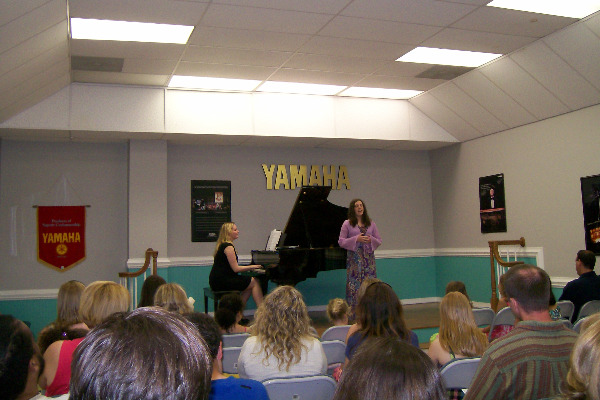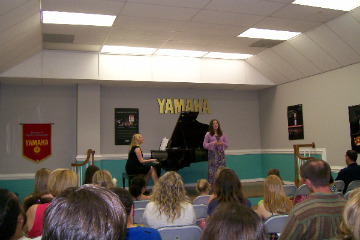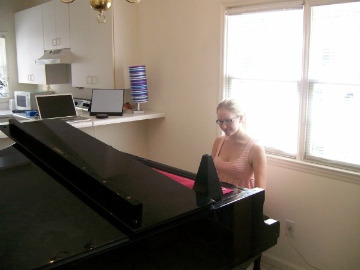
All photos by author.
If you’re thinking about starting music lessons – bravo! I’ve often thought the world would take a giant step towards enlightenment and happiness if everyone could be exposed to music-making.



All photos by author.
If you’re thinking about starting music lessons – bravo! I’ve often thought the world would take a giant step towards enlightenment and happiness if everyone could be exposed to music-making.
Finding the perfect music teacher is very important. Think of it as an investment in yourself, since you can end up devoting a lot of time (and money) to your passion for music. You need a teacher who will support you and maximize the enjoyment you get from the time and money you put in.
Over the last 20 years I spent more than 2,200 hours in music lessons – not including the 17,000 plus hours of practice – and last December I achieved my Masters in Music. Now I own my own music studio and adjunct at a local university, and I teach students with different personalities and different levels of ability.
I know I’m not the perfect teacher for every single music student: people have different tastes and different needs, so it makes sense a teacher will not be compatible with every prospective student.
I had seven piano teachers and four voice teachers since the age of five, and they all had very different teaching methods and styles.
One of my teachers was way too nice, and reluctant to give me any critique, but some were highly critical. I had one college professor ask me if I’d like an application form for McDonald’s after one of my performances! Most teachers, of course, fall somewhere between these two extremes.
Here are some tips to help you find the music teacher that’s right for you.
Ask for teacher recommendations from friends and acquaintances, and musicians in the area you respect. If the colleges and universities in your town have a music department, ask the departmental secretary or instrument division heads for contacts.

I highly recommend checking out the Music Teachers National Association, or similar associations around the world. There’s a lengthy vetting process to become a certified teacher in these organizations.
Not all musicians that are experienced performers and have a music degree are good teachers. But they’re likely to be, owing to their own range of experiences, exposure to pedagogy classes, and collaborative work with other musicians.
That being said, trust your gut. The best teacher for you is the one who is simpatico. Many teachers with the same degrees from the same schools, and with similar performance and teaching experience, will approach lessons in very different ways. It’s best to meet the teacher before committing to lessons, to tell whether you gel with the person. Failing that, at least talk to the teacher by phone.
Ask yourself these questions:
As Maya Angelou said, “The first time someone shows you who they are, believe them.”

Make sure the teacher instructs in the musical style or variety of styles you’re looking for.
Many musicians pick a stylistic path and will not be comfortable with genre crossover. Of course there are exceptions; it just depends on your preference.
You pay for what you get. Beware the super-cheap music teachers. Not only will they probably be considerably less experienced and credentialed, but they may have questionable ethics if they’re undercutting their fellow community music teachers. Invest in yourself and your happiness.
Yet high prices don’t automatically mean a better teacher. I may be lambasted for divulging this dirty little secret, but a few private music academies will charge way above market price just to give students a “brand name”.
Many of the instructors teaching at these academies receive less than 50% of the tuition. You could study with the very same teacher outside the academy, or with a teacher of similar quality, for half the price.
Of course, there are many reputable, ethical music academies around the world that do a great service to their students and instructors. Just do your homework and pay attention to the four other factors listed above.
Put some time into finding the right teacher, go with your gut, and have an awesome time!
Do you play a musical instrument? How did you learn? Do you have any more tips you can share on how to find the right music teacher? Let us know in the comments below.